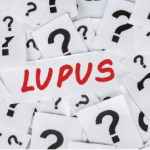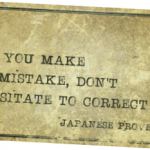- Reach out: Send an email or a text, make a phone call, or stop by to visit. As someone who has provided support for others, this always feels awkward; as someone who has needed support, every gesture has been welcome;
- Communicate: Having someone to listen to you can be enormously therapeutic, as can telling stories about the person who died;
- Create a safe space: As a non-millennial, I detest this expression. That said, it applies here; encourage the griever to express whatever they are feeling, without holding back; and
- Grief takes time: People are often surprised by how long it can take to complete the grieving process. In Judaism, the loss of a parent is mourned over four stages, acknowledging that grief continues to evolve over long periods of time before it completely dissipates.
As for me, I have found that I can hear my friend’s voice in my right ear. There is an old story about how everyone has a devil perched on his left shoulder, urging him to do bad, and an angel on his right, urging him to do good. I seem to hear her voice only on my right; I am sure she would be insulted by my surprise. But there it is, providing a commentary on my actions, disapproving when I don’t give my full effort, urging me to be a better man. I have come to think of this voice as a gift. I hope it doesn’t fade too quickly.
In the meanwhile, I have abandoned The Boss, and have started to listen to the Hamilton soundtrack. Both have so many songs about lost lives and lost opportunities; I think that is why both are helping me cope. I play the soundtrack on my commute to work, in place of the news programs I can no longer bear to listen to.
They say that “80% of success is showing up.” So instead of crawling back into bed, I listen to that voice in my right ear, and show up to work and take care of my patients, as I learn to live with the unimaginable.
 Philip Seo, MD, MHS, is an associate professor of medicine at the Johns Hopkins University School of Medicine, Baltimore. He is director of both the Johns Hopkins Vasculitis Center and the Johns Hopkins Rheumatology Fellowship Program.
Philip Seo, MD, MHS, is an associate professor of medicine at the Johns Hopkins University School of Medicine, Baltimore. He is director of both the Johns Hopkins Vasculitis Center and the Johns Hopkins Rheumatology Fellowship Program.
References
- Feldman DB. Why the five stages of grief are wrong. Psychology Today. 2017 Jul 7.
- Knittel MG. Grief following sudden death of a loved one. Psychology Today. 2016 Oct 4.
- Etheridge P. Going on after sudden loss of a loved one. CNN. 2014 Apr 2.
- Raab D. What everybody should know about survivor’s guilt. Psychology Today. 2018 Jan 26. .
- Castaneda R. How to balance work demands while grieving a sudden death. US News and World Reports. 2017 May 3.


